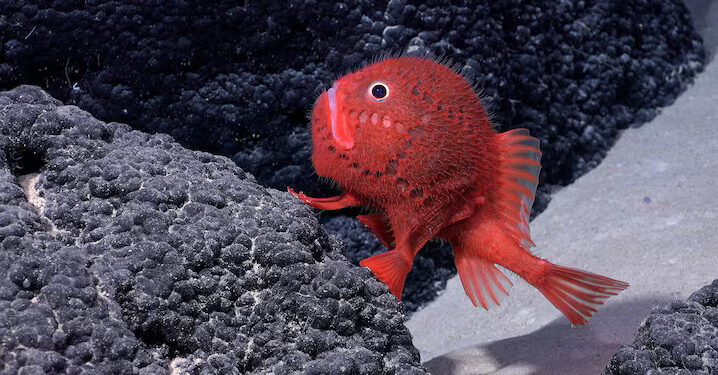An international group of scientists has uncovered over 100 potential new species in the deep-sea regions off the coast of Chile, marking a ground breaking achievement in marine biology. This discovery was reported by Voice of America (VOA) and comes as part of a detailed exploration of the ocean’s uncharted territories.
The expedition, led by Erin Easton, an assistant professor at the University of Texas Rio Grande Valley, focused its research on the Nazca Ridge, Salas y Gomez Ridge, and the Juan Fernandez ridge. Utilizing sophisticated underwater robotics, the team embarked on a journey to explore the seamounts—underwater mountains formed by volcanic activity—and gather specimens for further study.
The primary aim of this endeavour was to investigate the variability in benthic (bottom-dwelling) communities across different depths and seamount locations. Such research is crucial for understanding the unique characteristics of these communities and developing effective conservation and management strategies.
Among the findings, the team documented over 150 species that had not been previously reported in the area, highlighting the rich biodiversity of the region. Notable discoveries include the cactus urchins, which can grow to an impressive size of about half a meter, and ancient forests of bamboo coral, indicating millennia of underwater growth.
In addition to uncovering new biological species, the scientists also conducted extensive mapping of the seafloor, covering an area of 52,777 square kilometres.
The discovery of new species and seamounts underscores the rich biodiversity and complex geological formations present in the region, making it a key area for scientific research.
The data collected from this expedition not only enriches our understanding of marine biodiversity but also supports the potential establishment of an international high-seas marine protected area. This would ensure the protection of these unique ecosystems for future generations, emphasizing the critical role of scientific research in the preservation of our planet.




































